10 Most Influential Companies in the World That Aren’t Real
Fictional companies are strange. Though they exist only in books, movies, or TV shows, they manage to inspire and entertain us in ways that feel almost real. Aside from shaping the stories they’re part of, some of these companies also reflect our world in unique ways—sometimes with humor, other times with meaning. Let’s check out some of the many influential companies that aren’t real but continue to leave a lasting impression.
Wonka Industries
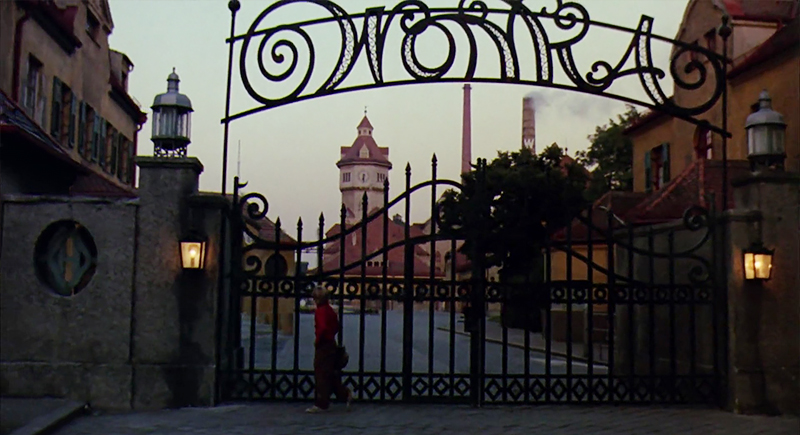
Credit: IMDb
Wonka Industries, straight out of Roald Dahl’s Charlie and the Chocolate Factory, is the stuff of childhood dreams. This candy empire, run by the enigmatic Willy Wonka, is known for its fantastical creations like the Everlasting Gobstopper and Fizzy Lifting Drinks. Beyond the chocolate, this is a world where the mundane rules of reality vanish.
Acme Corporation
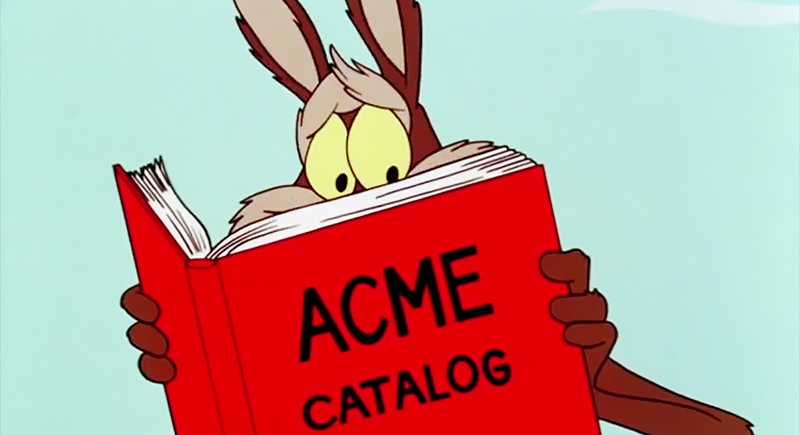
Credit: IMDb
If you’ve ever watched Looney Tunes, you know Acme Corporation. This company is the go-to supplier for Wile E. Coyote’s harebrained schemes. Need a rocket-powered unicycle? Acme has it. How about a giant spring-loaded boxing glove? Yep, they’ve got that too. The brilliance of Acme lies in its absurdity—everything looks amazing in theory but falls hilariously short in practice.
Wayne Enterprises
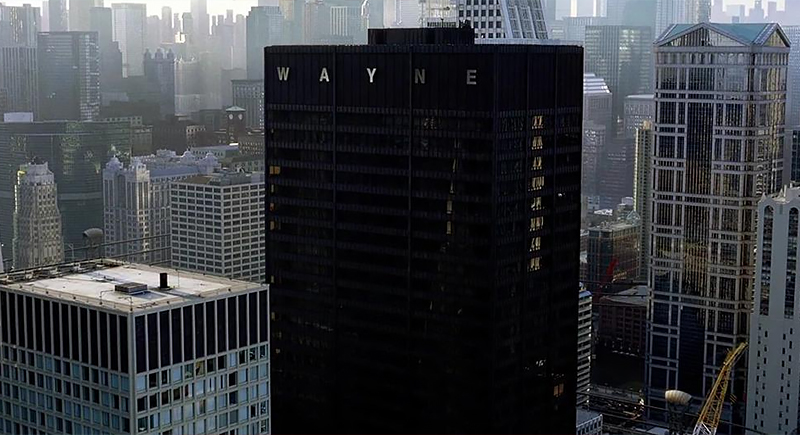
Credit: Reddit
Wayne Enterprises is Bruce Wayne’s key to funding his Batman alter ego and the beating heart of Gotham City. Bruce Wayne uses this conglomerate to bankroll Batman’s tech arsenal and support philanthropy across Gotham. It’s the most important plot device in one of the most influential stories of our time.
Cyberdyne Systems
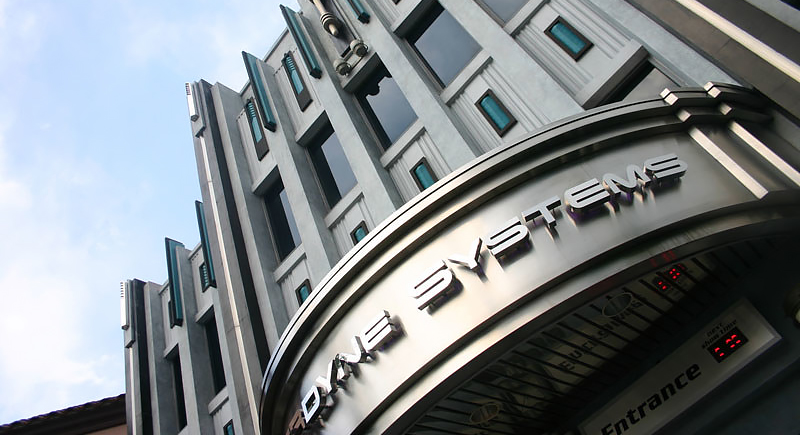
Credit: flickr
From the Terminator series, this tech giant is responsible for Skynet, the AI system that turns against humanity. What makes Cyberdyne so chilling is how plausible it feels—pioneering tech with good intentions spiraling wildly out of control. It’s a stark reminder that with great technological power comes great responsibility—and that humanity should think twice before handing the keys to the machines.
Duff Beer
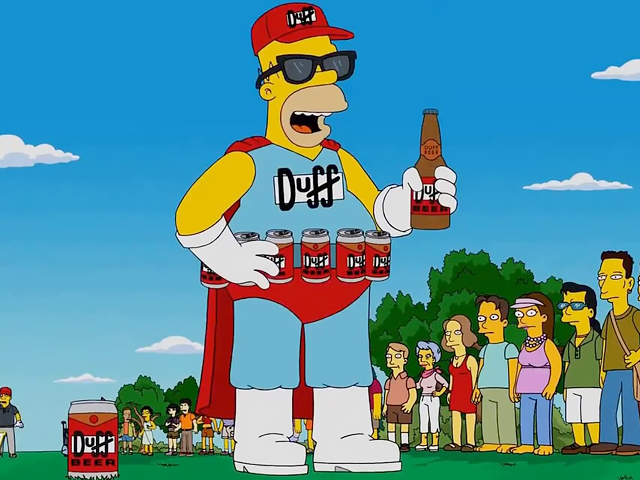
Credit: Youtube
No Springfield scene is complete without Duff Beer. Aside from being Homer’s favorite brew, this Simpsons staple is a satirical look at corporate branding and the cultural role of beer. There are also themes that capture the humor and absurdity of mass consumerism with over-the-top advertising to its status as a local icon.
The Krusty Krab
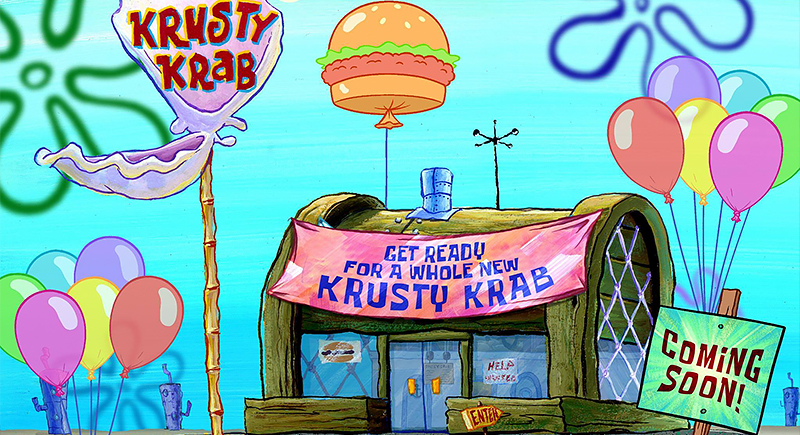
Credit: Facebook
Few fictional eateries are as beloved as the Krusty Krab in SpongeBob SquarePants. Run by the penny-pinching Mr. Krabs, it’s known for its famous Krabby Patty, a burger so delicious it’s practically a character in the show. The Krusty Krab is also where SpongeBob finds purpose as a fry cook. It shows that quirky workplaces are universal, even in the depths of the ocean.
Bubba Gump Shrimp Co.
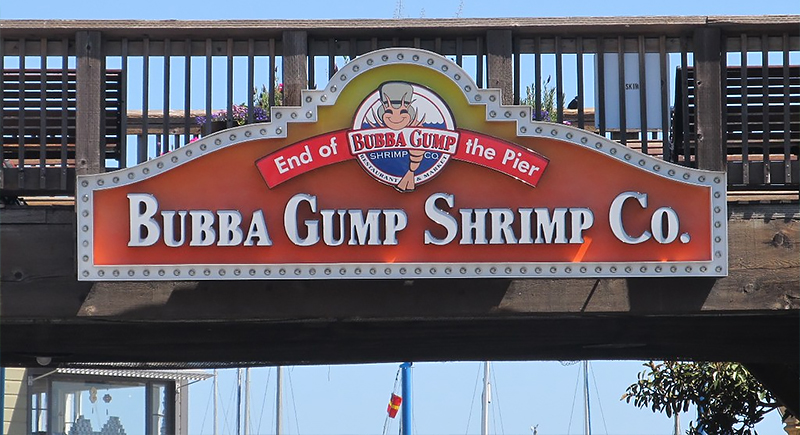
Credit: flickr
What started as a heartfelt promise in Forrest Gump became a symbol of friendship and resilience. Bubba Gump Shrimp Co. represents the simplicity of dreams and the grit it takes to see them through. The company follows the unexpected paths life can take when you stay true to your roots.
Sirius Cybernetics Corporation
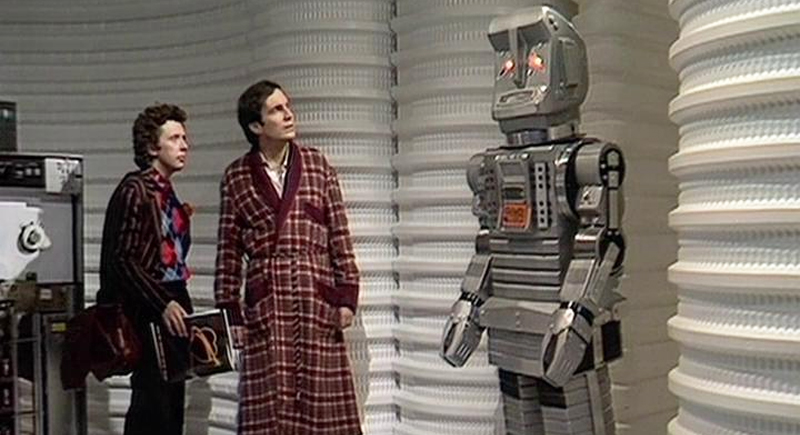
Credit: IMDb
Douglas Adams knew how to poke fun at corporate inefficiency, and the Sirius Cybernetics Corporation in The Hitchhiker’s Guide to the Galaxy is a masterstroke of satire. Their products, from doors that sigh melodramatically to robots with depression, are hilariously dysfunctional. the company pokes fun at bureaucracy and corporate inefficiency.
MomCorp
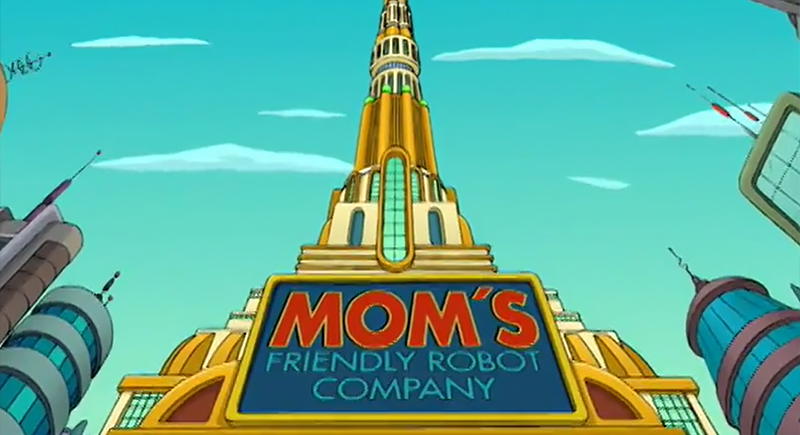
Credit: Youtube
MomCorp in Futurama might look like any other mega-corporation, but don’t be fooled. Beneath Mom’s granny-like exterior is a ruthless businesswoman who dominates industries ranging from robotics to consumer goods. You can picture her towering offices filled with sleek robots and terrified employees. MomCorp is a perfect mix of humor and dystopian commentary.
Olivia Pope & Associates
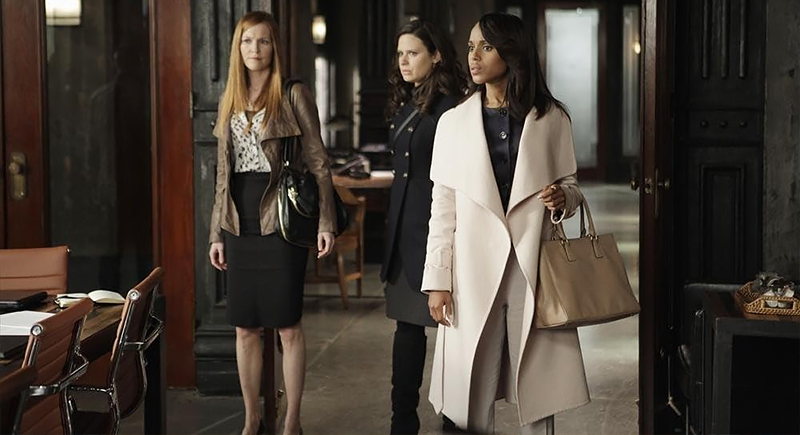
Credit: IMDb
In Scandal, Olivia Pope’s firm is the epitome of cool competence. When chaos strikes in Washington, D.C., her team steps in, armed with sharp suits and sharper strategies. The firm operates like a sleek, well-oiled machine, solving impossible problems with grace.
Stark Industries
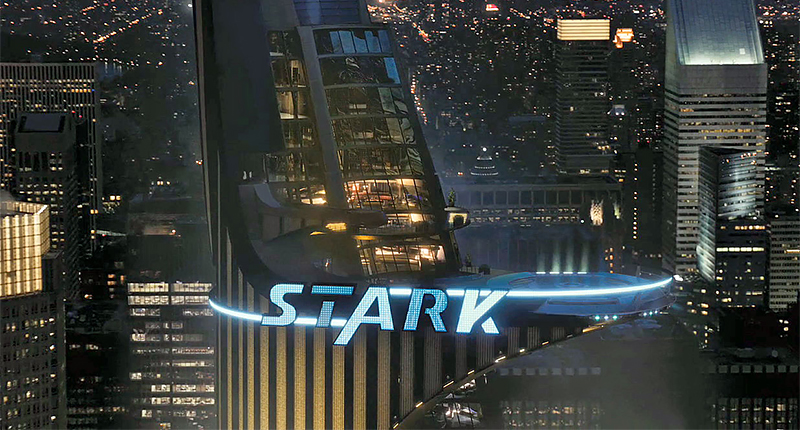
Credit: Facebook
Tony Stark’s company in the Marvel Universe is as cutting-edge as it gets. Stark Industries creates tech that feels just ahead of what’s possible, from arc reactors to Iron Man suits. Under Tony’s leadership, it evolves from a weapons manufacturer to a force for good. The company’s high-tech labs brim with innovation and the occasional hint of chaos.
Sterling Cooper
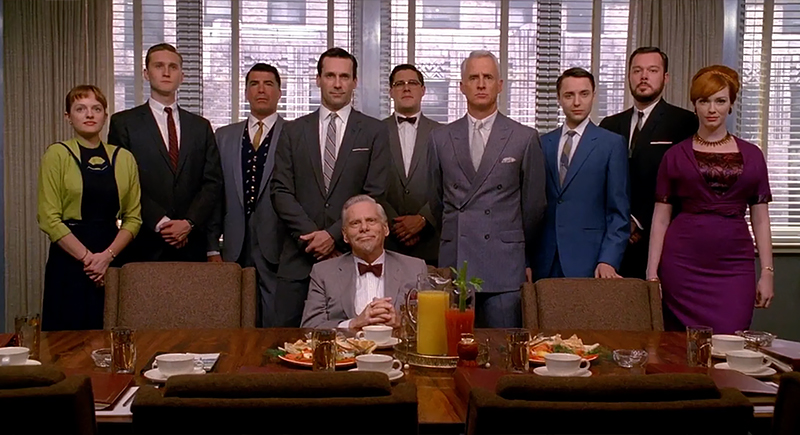
Credit: Reddit
The advertising agency from Mad Men is a snapshot of 1960s corporate America. Sterling Cooper captures the glitz and grit of Madison Avenue, from its ambitious pitches to its interpersonal dramas. It’s advertising at its most cutthroat, but also its most creative.
Globex Corporation
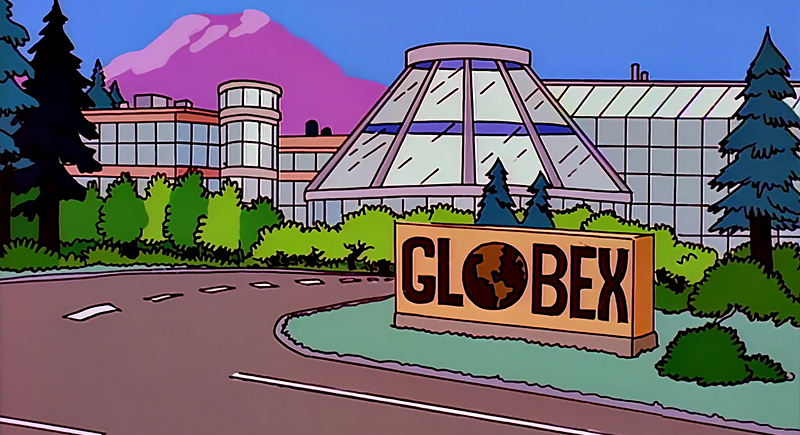
Credit: Reddit
In The Simpsons, Homer lands a dream job at Globex Corporation, led by the charmingly evil Hank Scorpio. The perks? A swanky office, a fancy house, and an employer who casually drops lines like, “By the way, I might destroy the East Coast this afternoon.” Globex perfectly blends corporate absurdity with James Bond-level villainy. HR must have their hands full.
CHOAM (Combine Honnete Ober Advancer Mercantiles)
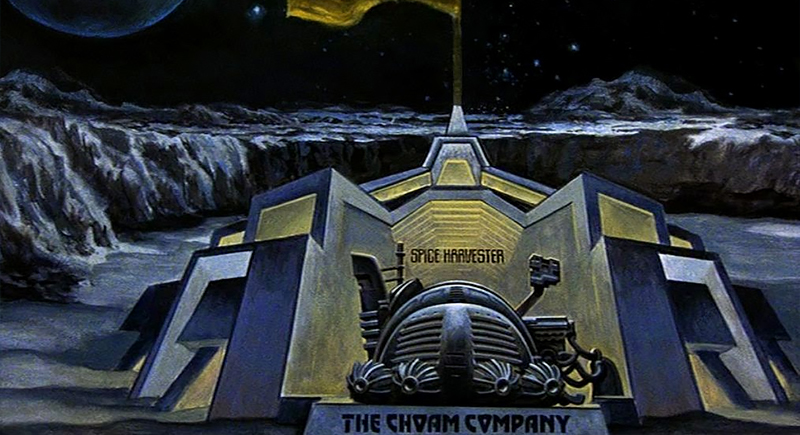
Credit: Reddit
In Frank Herbert’s Dune, CHOAM controls the trade of everything worth trading—including spice, the universe’s most valuable resource. It’s essentially a boardroom where galactic leaders in elaborate robes argue over profits while subtly plotting each other’s demise. Think Wall Street, but with sandworms.
Dunder Mifflin
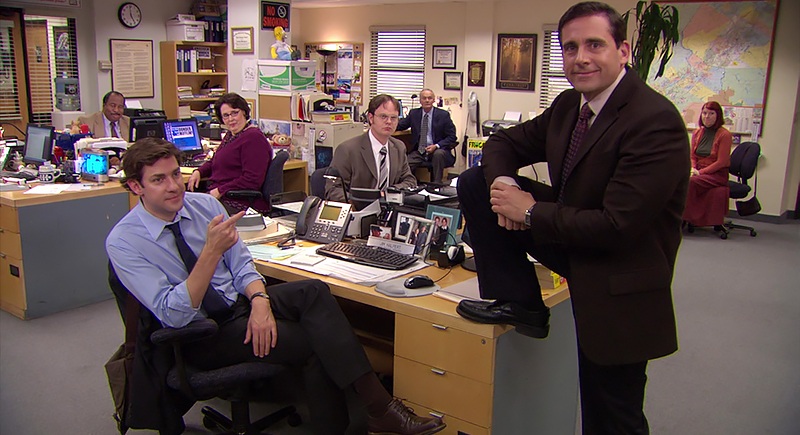
Credit: IMDb
Finally, there’s Dunder Mifflin, the small-town paper company at the heart of The Office. This unassuming business is the perfect backdrop for showing the quirks of office life, including Jim’s epic pranks on Dwight to Michael Scott’s cringe-worthy leadership moments. The company itself might just sell paper, but it’s the people who make it unforgettable.